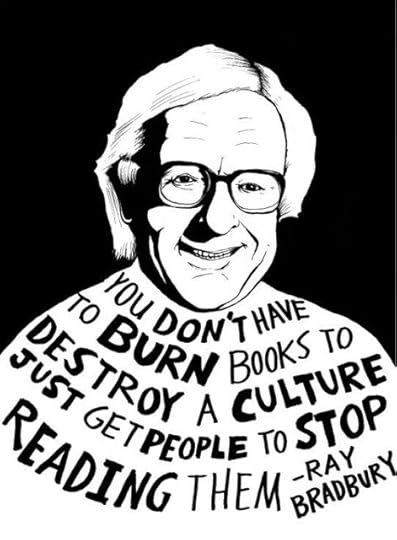Kenneth Atchity's Blog, page 131
October 18, 2017
What's in a name... Warner Bros. Retitles "MEG to "The MEG"

Director, Jon Turteltaub‘s (National Treasure). Starring are Jason Statham (Spy, Furious 7, The Expendables films) and award-winning Chinese actress Li Bingbing (Transformers: Age of Extinction, Forbidden Kingdom, The Message). The Meg will swim into theaters on August 10, 2018.
“A deep-sea submersible—part of an international undersea observation program—has been attacked by a massive creature, previously thought to be extinct, and now lies disabled at the bottom of the deepest trench in the Pacific…with its crew trapped inside. With time running out, expert deep sea rescue diver Jonas Taylor (Statham) is recruited by a visionary Chinese oceanographer (Winston Chao), against the wishes of his daughter Suyin (Li Bingbing), to save the crew—and the ocean itself—from this unstoppable threat: a pre-historic 75-foot-long shark known as the Megalodon. What no one could have imagined is that, years before, Taylor had encountered this same terrifying creature. Now, teamed with Suyin, he must confront his fears and risk his own life to save everyone trapped below…bringing him face to face once more with the greatest and largest predator of all time.”
Rounding out the international main cast of Meg are New Zealander Cliff Curtis (The Dark Horse, Risen, TV’s Fear the Walking Dead), Rainn Wilson (TV’s The Office, Super), Ruby Rose (xXx: Return of Xander Cage, TV’s Orange is the New Black), Winston Chao(Skiptrace, Kabali), Page Kennedy (TV’s Rush Hour), Jessica McNamee (The Vow, TV’s Sirens), Ólafur Darri Ólafsson (The BFG, TV’s The Missing), Robert Taylor (Focus, TV’s Longmire), Sophia Shuya Cai (Somewhere Only We Know), and Masi Oka (TV’s Hawaii Five-0, Heroes).
Read more

Published on October 18, 2017 16:34
Musicologist and Author of Dr. Fuddle and the Gold Baton, Dr. Warren Woodruff Attending CHOA Tower of Talent
 Joseph DeBlasi, Angelica Hale, Dr. Warren Woodruff
Joseph DeBlasi, Angelica Hale, Dr. Warren WoodruffSo happy to be reunited with my darling Angelica and to be a part of such a wonderful fundraiser for CHOA. Great job everyone!

 Yannie Tan and Laura Zhang
Yannie Tan and Laura Zhang 
Published on October 18, 2017 00:00
Warren Woodruff Attending CHOA Tower of Talent
 Joseph DeBlasi, Angelica Hale, Dr. Warren Woodruff
Joseph DeBlasi, Angelica Hale, Dr. Warren WoodruffSo happy to be reunited with my darling Angelica and to be a part of such a wonderful fundraiser for CHOA. Great job everyone!

 Yannie Tan and Laura Zhang
Yannie Tan and Laura Zhang 
Published on October 18, 2017 00:00
October 17, 2017
Writers and Authors Interviews Ken Atchity about The Messiah Matrix
Why Did You Write Such a Heavily-Researched Book as a Novel?
by Jo Linsdell
 I've been asked that question numerous times in interviews and emails, and it's a good one. As a former professor, I wrote more than a handful of scholarly books, and certainly could have expanded on the premise of The Messiah Matrix as nonfiction instead of in the format of a romantic thriller.
I've been asked that question numerous times in interviews and emails, and it's a good one. As a former professor, I wrote more than a handful of scholarly books, and certainly could have expanded on the premise of The Messiah Matrix as nonfiction instead of in the format of a romantic thriller.
My main reason for choosing to write it as a novel is that, to quote Muriel Rukeyser, "the universe is made of stories, not of atoms." I wanted this story to reach its maximum audience, and knew it would never do that as a nonfiction "study" of the origins of Christianity in imperial Rome. Even contemporary quantum physicists would agree that without our perception and report reality would not be all it's cracked up to be. If a tree falls in the forest, and there's no one to tell the story it simply doesn't matter whether it fell or not. We humans lead our lives through stories, depending on them as coping mechanisms and guides through the labyrinth of possibilities that face us every day—relying on them as inspiration for continuing the struggle and as consolation when the struggle comes to its inevitable end.
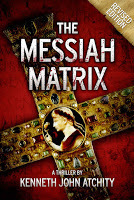 Once in a blue moon an idea comes your way that's worthy of Herman Melville's observation, in Moby Dick: "to write a mighty book you must have a mighty theme." When I started putting together the parallels between Julius and Augustus Caesar and Jesus, I knew no one would take them seriously unless they were presented as part of a contemporary tale of relevance to our world today. I'm not comparing my novel to Moby Dick, nor claiming it's a mighty tale—but its premise was powerful enough to compel me through the forty-something drafts I went through in the four years it was on the drawing board. I'd still like to do some more revising, and will no doubt do so on its way to the screen.
Once in a blue moon an idea comes your way that's worthy of Herman Melville's observation, in Moby Dick: "to write a mighty book you must have a mighty theme." When I started putting together the parallels between Julius and Augustus Caesar and Jesus, I knew no one would take them seriously unless they were presented as part of a contemporary tale of relevance to our world today. I'm not comparing my novel to Moby Dick, nor claiming it's a mighty tale—but its premise was powerful enough to compel me through the forty-something drafts I went through in the four years it was on the drawing board. I'd still like to do some more revising, and will no doubt do so on its way to the screen.
Storytelling is such a privilege that the ancient Greeks put the story teller, teknos, on a par with kings when it came to honoring his appearance in the polis. He was the center of attention because in the preliterate world his songs brought heroic behavior and insight into the human condition to a populace hungry for meaning, for figuring out what life is all about. Today's novelist, making his way from blog to blog in the new frontier that is the Internet, is like that ancient teknos. He is welcome if he tells a story that provokes us, that makes us laugh, or weep, or think.

by Jo Linsdell
 I've been asked that question numerous times in interviews and emails, and it's a good one. As a former professor, I wrote more than a handful of scholarly books, and certainly could have expanded on the premise of The Messiah Matrix as nonfiction instead of in the format of a romantic thriller.
I've been asked that question numerous times in interviews and emails, and it's a good one. As a former professor, I wrote more than a handful of scholarly books, and certainly could have expanded on the premise of The Messiah Matrix as nonfiction instead of in the format of a romantic thriller. My main reason for choosing to write it as a novel is that, to quote Muriel Rukeyser, "the universe is made of stories, not of atoms." I wanted this story to reach its maximum audience, and knew it would never do that as a nonfiction "study" of the origins of Christianity in imperial Rome. Even contemporary quantum physicists would agree that without our perception and report reality would not be all it's cracked up to be. If a tree falls in the forest, and there's no one to tell the story it simply doesn't matter whether it fell or not. We humans lead our lives through stories, depending on them as coping mechanisms and guides through the labyrinth of possibilities that face us every day—relying on them as inspiration for continuing the struggle and as consolation when the struggle comes to its inevitable end.
 Once in a blue moon an idea comes your way that's worthy of Herman Melville's observation, in Moby Dick: "to write a mighty book you must have a mighty theme." When I started putting together the parallels between Julius and Augustus Caesar and Jesus, I knew no one would take them seriously unless they were presented as part of a contemporary tale of relevance to our world today. I'm not comparing my novel to Moby Dick, nor claiming it's a mighty tale—but its premise was powerful enough to compel me through the forty-something drafts I went through in the four years it was on the drawing board. I'd still like to do some more revising, and will no doubt do so on its way to the screen.
Once in a blue moon an idea comes your way that's worthy of Herman Melville's observation, in Moby Dick: "to write a mighty book you must have a mighty theme." When I started putting together the parallels between Julius and Augustus Caesar and Jesus, I knew no one would take them seriously unless they were presented as part of a contemporary tale of relevance to our world today. I'm not comparing my novel to Moby Dick, nor claiming it's a mighty tale—but its premise was powerful enough to compel me through the forty-something drafts I went through in the four years it was on the drawing board. I'd still like to do some more revising, and will no doubt do so on its way to the screen.Storytelling is such a privilege that the ancient Greeks put the story teller, teknos, on a par with kings when it came to honoring his appearance in the polis. He was the center of attention because in the preliterate world his songs brought heroic behavior and insight into the human condition to a populace hungry for meaning, for figuring out what life is all about. Today's novelist, making his way from blog to blog in the new frontier that is the Internet, is like that ancient teknos. He is welcome if he tells a story that provokes us, that makes us laugh, or weep, or think.

Published on October 17, 2017 00:00
October 15, 2017
Even in the 1700s, Book Clubs Were Really About Drinking and Socializing
And “a considerable element of boisterous good humor.”
 Parties where playwrights like Moliere read aloud were precursors to rowdy book clubs. ullstein bild/Getty
Parties where playwrights like Moliere read aloud were precursors to rowdy book clubs. ullstein bild/Getty
In theory, book clubs are supposed to be about reading and discussing books. In practice, they are often more about hanging out with a group of people, drinking, gossiping, and generally having a nice evening. Depending on the percentage of the group that has actually read the book, it may be discussed, or it may not. The book is the excuse, not necessarily the point.
It turns out it’s always been this way.
Ever since the advent of book clubs in 18th-century England, when books were scarce and expensive, these organizations have been about more than reading. Book clubs were organized to help members gain access to reading material and to provide a forum for discussion of books the club held. But they were also about gossip and drinking. As the University of St. Andrews’ David Allan writes in A Nation of Readers, “In most cases, food and alcohol in copious quantities, accompanied we may suspect by a considerable element of boisterous good humour, played an important part in the life of the book clubs.”
Book clubs were part of this literary culture. In book clubs today every member might buy his or her own copy of a book, but in the 18th century, part of the point of the clubs was to pool resources in order to buy more books. Belonging to a book club meant having a larger personal library than you might otherwise have access to—you just had to share. There are few records of the activities of these early book clubs, but those that survive indicate that, as with today’s book clubs, members intended to get together and talk about books, but social aspects were key selling points.
One club, for instance, had 22 members (including Branwell Brontë, the sole brother of the literary siblings) and met for monthly dinners. “A broad hint of conviviality is given in the rules,” writes Kaufman, “which imposed fines for swearing, for being drunk ‘so that a member be offensive to the company,’ and for unseemly scrambling for books to borrow!” Another society, founded in 1742, lasted for decades, and the dinners were a key feature for it as well. “Article XV of the Regulations emphasizes in detail the monthly dinners, specifying—with elaborate exceptions—the Tuesday before the full moon,” Kaufman reports. A member who missed the dinner had to pay a shilling. For other misdemeanors, which included letting a dog into the club room or revealing his vote for or against a potential new member, members had to contribute a bottle of wine.
Read more

 Parties where playwrights like Moliere read aloud were precursors to rowdy book clubs. ullstein bild/Getty
Parties where playwrights like Moliere read aloud were precursors to rowdy book clubs. ullstein bild/GettyIn theory, book clubs are supposed to be about reading and discussing books. In practice, they are often more about hanging out with a group of people, drinking, gossiping, and generally having a nice evening. Depending on the percentage of the group that has actually read the book, it may be discussed, or it may not. The book is the excuse, not necessarily the point.
It turns out it’s always been this way.
Ever since the advent of book clubs in 18th-century England, when books were scarce and expensive, these organizations have been about more than reading. Book clubs were organized to help members gain access to reading material and to provide a forum for discussion of books the club held. But they were also about gossip and drinking. As the University of St. Andrews’ David Allan writes in A Nation of Readers, “In most cases, food and alcohol in copious quantities, accompanied we may suspect by a considerable element of boisterous good humour, played an important part in the life of the book clubs.”
Book clubs were part of this literary culture. In book clubs today every member might buy his or her own copy of a book, but in the 18th century, part of the point of the clubs was to pool resources in order to buy more books. Belonging to a book club meant having a larger personal library than you might otherwise have access to—you just had to share. There are few records of the activities of these early book clubs, but those that survive indicate that, as with today’s book clubs, members intended to get together and talk about books, but social aspects were key selling points.
One club, for instance, had 22 members (including Branwell Brontë, the sole brother of the literary siblings) and met for monthly dinners. “A broad hint of conviviality is given in the rules,” writes Kaufman, “which imposed fines for swearing, for being drunk ‘so that a member be offensive to the company,’ and for unseemly scrambling for books to borrow!” Another society, founded in 1742, lasted for decades, and the dinners were a key feature for it as well. “Article XV of the Regulations emphasizes in detail the monthly dinners, specifying—with elaborate exceptions—the Tuesday before the full moon,” Kaufman reports. A member who missed the dinner had to pay a shilling. For other misdemeanors, which included letting a dog into the club room or revealing his vote for or against a potential new member, members had to contribute a bottle of wine.
Read more

Published on October 15, 2017 00:00
October 13, 2017
Why I Founded Story Merchant Books
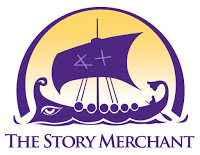 My representation company, Story Merchant had reached a point, about four years ago, when I knew something was wrong. I’d founded Story Merchant, a literary management company, to find books I could set up as films or television. But the flow of movie properties was slowing drastically because we were selling fewer and fewer books to the traditional publishers.
My representation company, Story Merchant had reached a point, about four years ago, when I knew something was wrong. I’d founded Story Merchant, a literary management company, to find books I could set up as films or television. But the flow of movie properties was slowing drastically because we were selling fewer and fewer books to the traditional publishers. Assessing the situation, we realized that traditional publishing had officially changed from the visionary entrepreneurial world it once was. Now nearly all major imprints were part of one or another of five big conglomerates. Hachette, CBS Viacom, Penguin Putnam Random House, Harper, and Holtzbrinck were all different, but they had one thing in common: the new international corporate owners cared primarily for the bottom line. They were allowing editors to take fewer and fewer chances on unknown new voices. It was breaking my heart to see outstanding books get kicked to the curb because they couldn’t prove they would sell, and because their authors didn’t have a national or international “platform”—that word that suddenly became as much a buzzword as “sustainable” is today.
Assessing the situation, we realized that traditional publishing had officially changed from the visionary entrepreneurial world it once was. Now nearly all major imprints were part of one or another of five big conglomerates. Hachette, CBS Viacom, Penguin Putnam Random House, Harper, and Holtzbrinck were all different, but they had one thing in common: the new international corporate owners cared primarily for the bottom line. They were allowing editors to take fewer and fewer chances on unknown new voices. It was breaking my heart to see outstanding books get kicked to the curb because they couldn’t prove they would sell, and because their authors didn’t have a national or international “platform”—that word that suddenly became as much a buzzword as “sustainable” is today.Then I got an invitation from a friend at Amazon, to attend a meeting of select literary reps—agents and managers—in New York. I was introduced to the prospect of working closely with Amazon, to pass along worthy books for direct publishing. Worthy books meant well-written, well-edited, well-designed, and well-launched books.
I instantly decided to form my own imprint, Story Merchant Books, to have books I could hand across the breakfast, lunch, and dinner tables I frequented in my Hollywood producing world. And it worked. Since the imprint began we’ve assisted nearly 200 titles in being direct-published, and have set up nearly twenty of them already as feature films, television films, or series.
Every setback is an opportunity in the new frontier of the story marketplace.

Published on October 13, 2017 00:00
October 11, 2017
More Story Merchant Books October Amazon eBook Deals
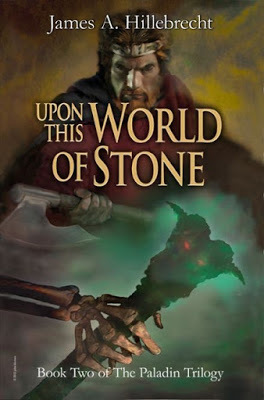 FREE October 12 - October 16
FREE October 12 - October 16 Upon This World of Stone, The Paladin Trilogy Book 2 by James A Hillebrecht
THE PALADIN TRILOGY:Three Novels of Heroism Darius Inglorion, a holy warrior known as a Paladin, is summoned to rally the divided states of the Southlands to fight a terrible invader while overcoming treachery and accusations of heresy.
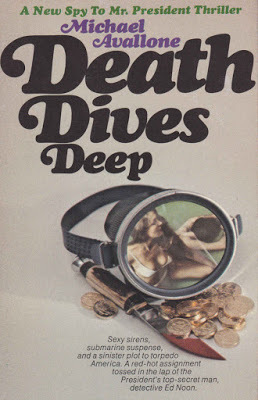 FREE October 16 - October 20
FREE October 16 - October 20 Death Dives Deep by Michael Avallone
An Ed Noon Mystery
Is there a genuine Bermuda Triangle Menace? Sexy sirens, submarine suspense, and a sinister plot to torpedo America. A red-hot assignment tossed in the lap of the President’s top-secret man, detective Ed Noon.

Published on October 11, 2017 00:00
October 2, 2017
Kings River Life Magazine Feature: Dennis Palumbo’s Dr. Daniel Rinaldi: A Good Man to Have on Your Side
Be content with what you have: rejoice in the way things are.
When you realize there is nothing lacking, the whole world belongs to you. —Lao Tzu
Employing a psychologist or a psychiatrist as a part of an investigative team makes perfect sense. It has worked well for Val McDermid and her Dr. Tony Hill. Even Thomas Harris’s Hannibal Lecter, though insane, had professional insights that helped Clarice Starling find “Buffalo Bill” after all. Enter Daniel Rinaldi, Dennis Palumbo’s clinical psychologist based in Pittsburgh. Rinaldi, no stranger to trauma and personal loss himself, is the therapist we dream of: worthy of trust, adept at his job, and flawed just enough to make him interesting but not enough to damage any of us or his patients. He is pulled into Pittsburgh’s Police Department for more than one reason and shoulders his way through resentment and obstructions to help both patients and friends involved in or with law enforcement.
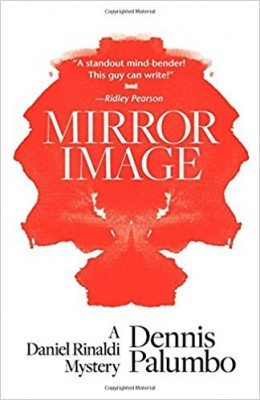 Mirror Image (2010) introduces police consultant, trauma specialist, and therapist Daniel Rinaldi who finds himself a murder suspect when one of his patients turns up murdered. His personal and professional jeopardy increases when a contentious colleague wants Rinaldi brought up on charges but turns up murdered. Rinaldi tries to treat the survivor of a brutal bank robbery in Fever Dream (2011), but she keeps vanishing. The investigation is further compromised by one (or more) of the police detectives who is busy going off the rails. And since profilers spend their professional lives studying the worst criminals among us, when one of them needs a therapist, in the spirit of law enforcement inter-department co-operation, Rinaldi is shanghaied to assist in Night Terrors (2013).
Mirror Image (2010) introduces police consultant, trauma specialist, and therapist Daniel Rinaldi who finds himself a murder suspect when one of his patients turns up murdered. His personal and professional jeopardy increases when a contentious colleague wants Rinaldi brought up on charges but turns up murdered. Rinaldi tries to treat the survivor of a brutal bank robbery in Fever Dream (2011), but she keeps vanishing. The investigation is further compromised by one (or more) of the police detectives who is busy going off the rails. And since profilers spend their professional lives studying the worst criminals among us, when one of them needs a therapist, in the spirit of law enforcement inter-department co-operation, Rinaldi is shanghaied to assist in Night Terrors (2013).
Although patient treatment usually falls into recognizable categories, therapists may have conflicting views on what is benign enough to be ignored in their patients’ behavior and what should be directly addressed. In Mirror Image the murder of one of Rinaldi’s patients outrages one of Rinaldi’s colleagues to the extent that violence ensues between the two doctors. Events progress even more dangerously so that Rinaldi becomes a murder suspect twice over. The hits just keep on coming for the good doctor when he crosses a magnate wealthy beyond our ken who is determined to ruin the doctor’s reputation in a national media campaign.
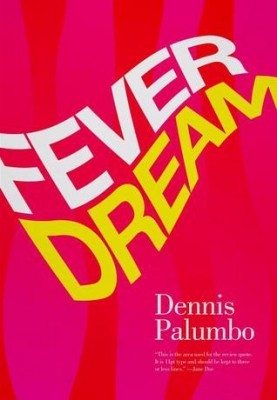 Rinaldi’s personal experience with trauma has made him a better therapist, but he isn’t immune to conflict surrounding survivors as they cope with the aftermath of violence. Fever Dream blurs the line between his own desires and the reality of the crime itself as well as his unwilling entanglement in a public official’s political ambitions. As if the doctor weren’t tasked enough, he seems helpless as one colleague shuts him out for personal reasons while another is busy blazing a self-destructive path through Pittsburgh. The death threats meant to muddy the waters even more have the opposite effect on Rinaldi as he begins to see the pattern of how it all fits together.
Rinaldi’s personal experience with trauma has made him a better therapist, but he isn’t immune to conflict surrounding survivors as they cope with the aftermath of violence. Fever Dream blurs the line between his own desires and the reality of the crime itself as well as his unwilling entanglement in a public official’s political ambitions. As if the doctor weren’t tasked enough, he seems helpless as one colleague shuts him out for personal reasons while another is busy blazing a self-destructive path through Pittsburgh. The death threats meant to muddy the waters even more have the opposite effect on Rinaldi as he begins to see the pattern of how it all fits together.
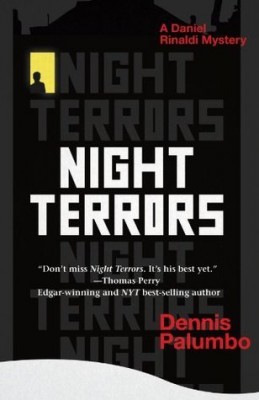 Imagine what it must be like to have violent, aberrant behavior as the focus of your profession. Such is the case for Lyle Barnes in Night Terrors. Years of exposure to the worst individuals civilization has to offer has taken its toll on the veteran profiler in the form of the sleep disorder, night terrors. That he is also the focus of an assassin ups the stakes. Barnes disappears from protective custody before Rinaldi can begin to help him, complicating all of the above. As always, Rinaldi becomes more involved that he would like doing his best to help the mother of a killer she affirms is innocent—all evidence to the contrary.
Imagine what it must be like to have violent, aberrant behavior as the focus of your profession. Such is the case for Lyle Barnes in Night Terrors. Years of exposure to the worst individuals civilization has to offer has taken its toll on the veteran profiler in the form of the sleep disorder, night terrors. That he is also the focus of an assassin ups the stakes. Barnes disappears from protective custody before Rinaldi can begin to help him, complicating all of the above. As always, Rinaldi becomes more involved that he would like doing his best to help the mother of a killer she affirms is innocent—all evidence to the contrary.
These first three Rinaldi novels are so full of plots and characters that readers are kept busy indeed. Not only does Dr. Rinaldi have his hands full with patients in various stages of psychological health, he is finding his way back to a love life after years of mourning and is the go-to therapist for local and national law enforcement. What keeps me reading despite sometimes wanting a flow chart is that Rinaldi is a man we would all like to know. Despite conflict he is centered and innately positive. As a colleague, a friend, or a lover Rinaldi is a man to have on your side. Despite his often clouded vision or because of it, the doctor is immediately likable and one cares for him and for what happens to him. I look forward to the next Rinaldi novel, Phantom Limb (2014). I’m late to the party in reading these novels, but the party is still going on!
Read more

When you realize there is nothing lacking, the whole world belongs to you. —Lao Tzu
Employing a psychologist or a psychiatrist as a part of an investigative team makes perfect sense. It has worked well for Val McDermid and her Dr. Tony Hill. Even Thomas Harris’s Hannibal Lecter, though insane, had professional insights that helped Clarice Starling find “Buffalo Bill” after all. Enter Daniel Rinaldi, Dennis Palumbo’s clinical psychologist based in Pittsburgh. Rinaldi, no stranger to trauma and personal loss himself, is the therapist we dream of: worthy of trust, adept at his job, and flawed just enough to make him interesting but not enough to damage any of us or his patients. He is pulled into Pittsburgh’s Police Department for more than one reason and shoulders his way through resentment and obstructions to help both patients and friends involved in or with law enforcement.
 Mirror Image (2010) introduces police consultant, trauma specialist, and therapist Daniel Rinaldi who finds himself a murder suspect when one of his patients turns up murdered. His personal and professional jeopardy increases when a contentious colleague wants Rinaldi brought up on charges but turns up murdered. Rinaldi tries to treat the survivor of a brutal bank robbery in Fever Dream (2011), but she keeps vanishing. The investigation is further compromised by one (or more) of the police detectives who is busy going off the rails. And since profilers spend their professional lives studying the worst criminals among us, when one of them needs a therapist, in the spirit of law enforcement inter-department co-operation, Rinaldi is shanghaied to assist in Night Terrors (2013).
Mirror Image (2010) introduces police consultant, trauma specialist, and therapist Daniel Rinaldi who finds himself a murder suspect when one of his patients turns up murdered. His personal and professional jeopardy increases when a contentious colleague wants Rinaldi brought up on charges but turns up murdered. Rinaldi tries to treat the survivor of a brutal bank robbery in Fever Dream (2011), but she keeps vanishing. The investigation is further compromised by one (or more) of the police detectives who is busy going off the rails. And since profilers spend their professional lives studying the worst criminals among us, when one of them needs a therapist, in the spirit of law enforcement inter-department co-operation, Rinaldi is shanghaied to assist in Night Terrors (2013).Although patient treatment usually falls into recognizable categories, therapists may have conflicting views on what is benign enough to be ignored in their patients’ behavior and what should be directly addressed. In Mirror Image the murder of one of Rinaldi’s patients outrages one of Rinaldi’s colleagues to the extent that violence ensues between the two doctors. Events progress even more dangerously so that Rinaldi becomes a murder suspect twice over. The hits just keep on coming for the good doctor when he crosses a magnate wealthy beyond our ken who is determined to ruin the doctor’s reputation in a national media campaign.
 Rinaldi’s personal experience with trauma has made him a better therapist, but he isn’t immune to conflict surrounding survivors as they cope with the aftermath of violence. Fever Dream blurs the line between his own desires and the reality of the crime itself as well as his unwilling entanglement in a public official’s political ambitions. As if the doctor weren’t tasked enough, he seems helpless as one colleague shuts him out for personal reasons while another is busy blazing a self-destructive path through Pittsburgh. The death threats meant to muddy the waters even more have the opposite effect on Rinaldi as he begins to see the pattern of how it all fits together.
Rinaldi’s personal experience with trauma has made him a better therapist, but he isn’t immune to conflict surrounding survivors as they cope with the aftermath of violence. Fever Dream blurs the line between his own desires and the reality of the crime itself as well as his unwilling entanglement in a public official’s political ambitions. As if the doctor weren’t tasked enough, he seems helpless as one colleague shuts him out for personal reasons while another is busy blazing a self-destructive path through Pittsburgh. The death threats meant to muddy the waters even more have the opposite effect on Rinaldi as he begins to see the pattern of how it all fits together. Imagine what it must be like to have violent, aberrant behavior as the focus of your profession. Such is the case for Lyle Barnes in Night Terrors. Years of exposure to the worst individuals civilization has to offer has taken its toll on the veteran profiler in the form of the sleep disorder, night terrors. That he is also the focus of an assassin ups the stakes. Barnes disappears from protective custody before Rinaldi can begin to help him, complicating all of the above. As always, Rinaldi becomes more involved that he would like doing his best to help the mother of a killer she affirms is innocent—all evidence to the contrary.
Imagine what it must be like to have violent, aberrant behavior as the focus of your profession. Such is the case for Lyle Barnes in Night Terrors. Years of exposure to the worst individuals civilization has to offer has taken its toll on the veteran profiler in the form of the sleep disorder, night terrors. That he is also the focus of an assassin ups the stakes. Barnes disappears from protective custody before Rinaldi can begin to help him, complicating all of the above. As always, Rinaldi becomes more involved that he would like doing his best to help the mother of a killer she affirms is innocent—all evidence to the contrary.These first three Rinaldi novels are so full of plots and characters that readers are kept busy indeed. Not only does Dr. Rinaldi have his hands full with patients in various stages of psychological health, he is finding his way back to a love life after years of mourning and is the go-to therapist for local and national law enforcement. What keeps me reading despite sometimes wanting a flow chart is that Rinaldi is a man we would all like to know. Despite conflict he is centered and innately positive. As a colleague, a friend, or a lover Rinaldi is a man to have on your side. Despite his often clouded vision or because of it, the doctor is immediately likable and one cares for him and for what happens to him. I look forward to the next Rinaldi novel, Phantom Limb (2014). I’m late to the party in reading these novels, but the party is still going on!
Read more

Published on October 02, 2017 00:00
September 30, 2017
Story Merchant Books October Amazon eBook Deals!
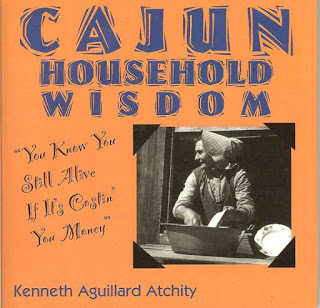 FREE September 30 - October 4
FREE September 30 - October 4Kenneth Atchity's Cajun Household
Wisdom
Laissez les bon temps roulez! Let the good times roll!
Cajun culture is funny and fun-loving. It's rooted in the earth. It's rooted in the kitchen. It's needlessly, hopelessly, complicated, and yet is utterly simple and suspicious of all things modern, especially food and drink.
CAJUN HOUSEHOLD WISDOM takes you back to the days when family gatherings stretched far into summer nights with endless food and fun, when uncles and aunts, sisters and brothers, and countless cousins teased and taunted and chased fireflies, while grandpere spouted yet another story about "that ol' white mule," and strains of fiddle music lured lovers off into the dark.
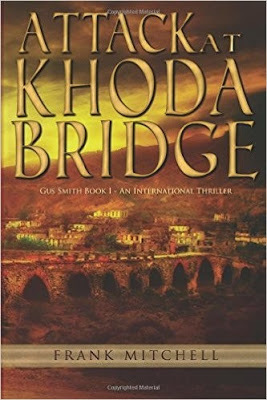
FREE October 3 - October 7
Attack on Khoda Bridge by Frank Mitchell
Ankara, Nov 5th 1979 (TPI). Two days ago, terrorists attacked an engineering survey party preparing topographical maps for the future hydroelectric dam on the Aras River between the Republic of Iran and the Soviet Socialist Republic of Azerbaijan. A senior Russian engineer, an Iranian engineering officer, and a junior officer were killed by the terrorists. Surviving were an American and a Turkish engineer. After dark, there was a gun battle at the nearby construction camp. The construction workers drove off a larger unit of radical Islamists revolutionaries causing heavy casualties among the pasdaran.

Free October 6 - October 10
Budget Bucks in Your Lap: Become a More Successful Whitetail
This book was written for every hunter who wants close encounters with the nicest White-tailed bucks his/her hunting area has to offer. No sanctuary or game preserve deer are illustrated within.
 FREE October 9 - October 13
FREE October 9 - October 13 Take Heart by Lauren Michelle Smith
Sweet, funny and sexy romance! Mia, strong, independent, and quick-witted is a bit guarded from dealing with life's hardships at the hands of an alcoholic mother when she meets the charming Chase Williams.
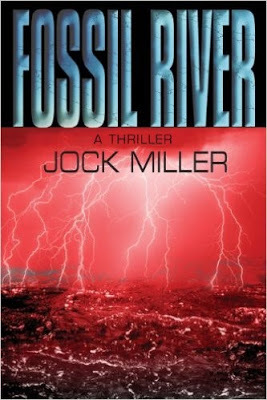
FREE October 11 - October 15!! Fossil River by Jock Miller
Fossil fuel has an ageless affinity with dinosaurs. To create oil, dinosaurs died. Now, in this riveting action thriller, the tables are turning!This pedal-to-the-metal speculative thriller revolves around the discovery of a highly territorial colony of predatory dinosaurs in Alaska that has survived undetected for millions of years.
~ Kirkus Review

Published on September 30, 2017 00:00
September 29, 2017
Banned Books Week... Read on!
Published on September 29, 2017 00:00

